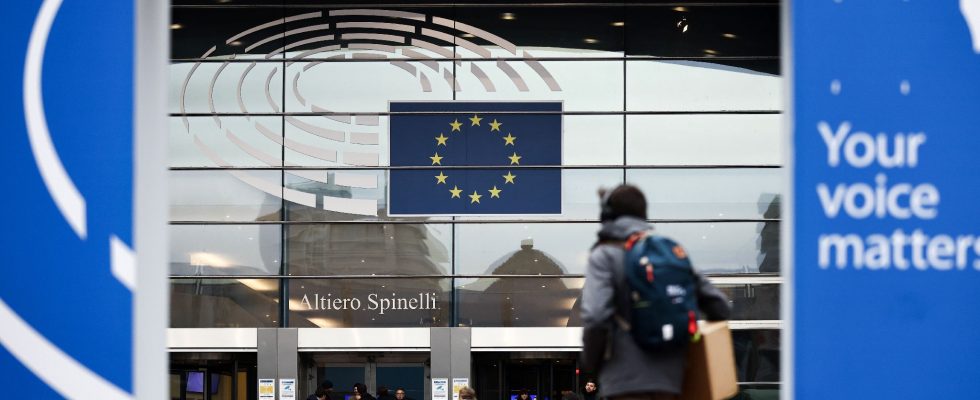Cases caused a stir at the end of last year, when several MEPs – and one of the vice-presidents of the European Parliament – were implicated in a corruption scandal involving Qatar and Morocco. This Thursday, July 13, the European Parliament’s special committee on foreign interference presented recommendations to strengthen the “transparency” and “integrity” of the institution. Although it was approved by a large majority (441 votes for, 70 against, 71 abstentions), this cross-party report remains devoid of any binding legal value.
Its adoption, however, marks the end of the work of the special commission, set up in 2020 to fight against disinformation and attempts at foreign interference, but whose mission has taken on a new dimension with this anti-corruption investigation carried out in Brussels at the end of 2022. Raphaël Glucksmann (S & D, left), chairman of this special commission, called for the work to continue within a permanent commission.
The final report develops a “new approach to security issues” of Parliament and European institutions, explained the French elected official to the press. “For a very long time, the European institutions have shown naivety and weakness. This report is a big step towards building a stronger EU.”
Make recommendations binding
The special committee recommends in particular strengthening the transparency imposed on MEPs, through the introduction of a declaration of assets at the start and end of their term of office, the creation of a register listing the visits received by elected representatives and their cabinet, or still the obligation to provide the names of third parties financing their trips, detailed Nathalie Loiseau (Renew, liberals), co-rapporteur of the text.
She also called for “more security to protect the work of MEPs”. Security “has been a dirty word for years in this Parliament, she regretted. We were supposed to be an open institution, we have become an institution open to harmful intrusions”. The special committee called on the European executive in Brussels to take up these recommendations to make them binding.
When she took office as head of the European Commission in 2019, Ursula von der Leyen announced her intention to create “an independent ethical body” responsible for monitoring the “transparency and integrity” of European institutions. However, this body has not yet seen the light of day. “We are extremely impatient, concluded Raphaël Glucksmann. The defense of democracy cannot wait.”
